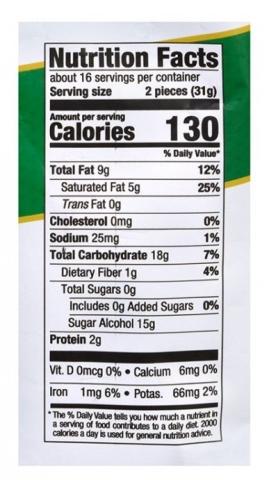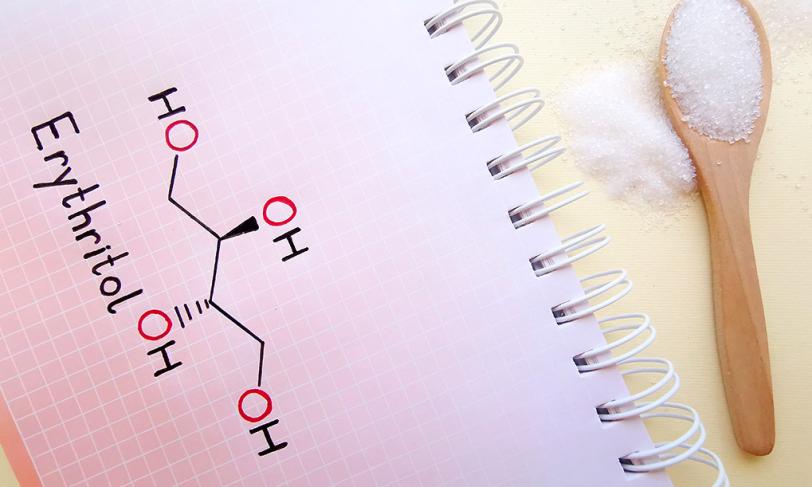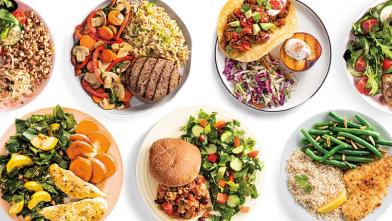
The term “sugar substitutes” refers to high-intensity sweeteners, artificial sweeteners, non-nutritive sweeteners, and other low-calorie sweeteners. Then there are sugar alcohols, such as erythritol, xylitol, and mannitol. Sugar alcohols are becoming more popular in low-carbohydrate diets. But what are they? And are they a good option for people with diabetes?
What are sugar alcohols?
Some sugar substitutes are called “high intensity” because they taste much sweeter than sugar. Since they are so sweet, only a tiny amount is needed to give the same sweetness of sugar, with almost no calories.
Unlike high-intensity sweeteners, sugar alcohols are less sweet than sugar. You may need to use more sugar alcohol to reach the same sweetness as regular sugar, but because they have fewer calories per gram, they are considered a low-calorie sweetener.
Don’t let the word “alcohol” confuse you, sugar alcohols are not the same as the alcohol that causes you to get a buzz. Alcohol, in this case, is talking about to the shape of the molecule. So don’t worry, it’s just a chemistry thing.

How are sugar alcohols used?
You may see sugar alcohols located in the baking section of the grocery store. Some recipes will specify when to use a sugar alcohol versus a different type of low- or no-calorie sweetener. And often the sugar alcohol’s package will tell you how much to use to replace regular sugar in a recipe. Make sure to follow the recipe’s recommendations for which sweetener to use because sugar alcohol and low- or no-calorie sweeteners perform differently in the baking process.
Sugar alcohol can also be found in many sugar-free foods, including chewing gum, candy, ice cream, and fruit spreads. They are also often used as a sweetener in toothpaste, mouthwash, and cough drops.
Products labelled as “diet,” “sugar-free,” or “no-sugar-added” can have sugar alcohols in the ingredients. If a product has sugar alcohols, you will see “sugar alcohol” listed under Total Carbohydrates on the Nutrition Facts label.
Common sugar alcohols you may find are xylitol, erythritol, sorbitol, and maltitol. They usually end in the letters “ol”, like in the word “alcohol.” Looking for words ending in “ol” is a helpful trick to be able to quickly spot them in the ingredient list.
Do sugar alcohols raise blood glucose?
Depending on the type of sugar alcohol, yes. Sugar alcohols are a type of carbohydrate which can raise blood glucose (blood sugar). As you’ll notice in the Nutrition Facts label, sugar-free foods that contain sugar alcohols are not carbohydrate- or calorie-free!
However, sugar alcohols are processed by the body in a different way from other carbohydrates, and some may raise your blood glucose by a little while others may not increase it at all. For example, erythritol is a type of sugar alcohol that may not increase your blood glucose. For this reason, it has become very popular as an ingredient in low-carb foods.
No matter the type, sugar alcohols will not raise your blood glucose as much as regular sugar.
How sugar alcohols affect other parts of the body
- Teeth: Unlike regular sugar, sugar alcohols do not promote cavities. As a matter of fact, xylitol, a type of sugar alcohol seen in sugar-free chewing gum, may help prevent cavities.
- Stomach: Many sugar alcohols can cause gas, bloating, and stomach aches, especially when eaten in large amounts, and some people may be more sensitive to this effect than others.
If you have an upset stomach when eating sugar-free or other foods sweetened with sugar alcohol, read the ingredients to see what kind of sugar alcohol is in the product. You may want to avoid foods that have that type of sugar alcohol or cut back on how much you eat in one sitting.
The bottom line
Sugar alcohols are safe to eat and may be a good option for people with diabetes. However, they can cause stomach issues when eaten in large amounts, and some sugar alcohols can raise blood glucose.
Remember, “sugar-free” does not mean “carbohydrate-free” if sugar alcohols are being used! Read the label to see the carbohydrate content of sugar-free foods.
Foods with sugar alcohols can fit in your eating plan as long as you count the carbohydrates. Check your blood glucose before eating and 1.5–2 hours after eating a food with sugar alcohols to see how it changes.
As always, your dietitian or diabetes health care team can help you decide if including any type of sugar substitutes in your eating plan is the best choice for you.
Don’t forget to sign up for Diabetes Food Hub’s e-newsletter for diabetes-friendly ideas and recipes.








